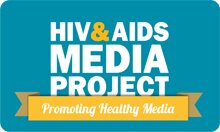Nkosi Johnson
Quotable Quotes
"You can't get AIDS by hugging, kissing, holding hands. We are normal. We are human beings. We can walk, we can talk ... We have needs just like everyone else. We are all the same."— Nkosi Johnson, in a speech at the 13th International AIDS Conference,July 9, 2000.
South Africa's youngest HIV/AIDS activist, Nkosi Johnson, was a symbol of hope in the late 1990s. Johnson was born HIV-positive in 1989. When he was three Gail Johnson adopted him, after his mother, Nonthlanthla Daphne Nkosi, could no longer look after him because of her worsening health. Johnson first appeared in the public eye in 1997, when a primary school refused to accept him because of his HIV status. The school later reversed its decision and the South African government later formulated legislation in response to Johnson's story. His largest impact came at the 13th International AIDS Conference held in Durban in 2000, when he delivered a heartfelt keynote speech that called for the destigmatisation of the disease and the introduction of the mother-to-child-transmission prevention programme (read speech). “You can't get AIDS by hugging, kissing, holding hands. We are normal. We are human beings. We can walk, we can talk. ... We have needs just like everyone else. We are all the same,” he told a 10 000-strong audience sitting in rapt silence and millions of television viewers from around the world. His health worsened later that year. On December 29, 2000, he collapsed on a visit to Nkosi's Haven, a home for HIV-positive women and their children set up by Gail Johnson. He slipped into a semi-coma and died on June 1, 2001, aged 12. In his honour Gail Johnson has opened the Nkosi Johnson AIDS Foundation, which supports people living with HIV/AIDS, raises awareness and tries to remove the stigma of HIV/AIDS in South Africa.






